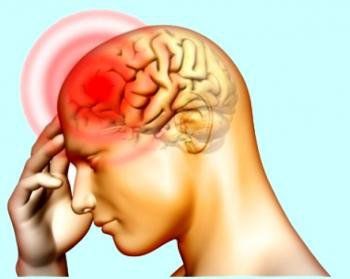This is an automatically translated article.
The article is professionally consulted by Master, Doctor Huynh An Thien - Department of Medical Examination & Internal Medicine - Vinmec Danang International General Hospital.Headache, nausea, and dizziness are not uncommon symptoms in all ages. This condition can be a manifestation of many health problems such as vestibular disorders, acute and chronic otitis media, cerebral circulatory insufficiency...
1. Symptoms of headache, nausea, dizziness
Before learning what headache, nausea, and dizziness is, the patient needs to understand the specific symptoms of this condition. Accordingly, headache, nausea, and dizziness are false sensations about the body's movement relative to space or space relative to the body (the feeling that objects are wobbling around or you are rotating around objects). . People with dizziness, headaches often lose balance, walk unsteadily, feel like they are sitting on a boat, may have nausea or vomiting, tinnitus, hearing loss,... the disease changes position or when turning the head. Therefore, patients often lie still in a position, eyes closed to reduce uncomfortable symptoms.
Trắc nghiệm: Bận rộn có ảnh hưởng đến sức khỏe của bạn không?
Cuộc sống hiện đại khiến chúng ta vì quá bận rộn mà quên chăm sóc sức khỏe cho chính mình. Ai cũng biết rằng lịch trình làm việc cả ngày có thể khiến bạn kiệt sức, nhưng cụ thể bận rộn ảnh hưởng thế nào tới sức khỏe? Hãy cùng làm thử bài trắc nghiệm dưới đây.
2. Headache, nausea, dizziness, what disease?
To keep balance for the body requires the participation of the sensory system (vestibular system, depth sense and vision), the central nervous system and the muscles of the neck, trunk, extremities... If Damage to these organs can cause dizziness and loss of balance.
What is a headache and nausea? This condition can be a manifestation of many rather dangerous health problems. Detail:

2.1 Dizziness headache of peripheral origin
Benign paroxysmal postural vertigo: dizziness occurs suddenly, when changing positions and without warning signs. The symptoms of dizziness usually last a few seconds, appearing after moving the head. Benign paroxysmal positional vertigo accounts for about 30% of vertigo cases. Meniere's disease: the manifestation of this disease is dizziness lasting 5 minutes - 5 hours. Before the dizziness, the patient had a feeling of hearing loss and tinnitus. Dizziness comes on suddenly, accompanied by nausea and vomiting. Episodes of vertigo can recur and lead to progressive hearing loss. Meniere's disease is mainly seen in people who are often psychologically stressed. The cause of the disease is an imbalance of pressure in the inner ear. Vestibular neuritis: shingles virus, chickenpox, mumps account for 5% of cases of neuritis, causing paralysis of the vestibular nerve, leading to sudden onset of dizziness, lasting from several hours to several months without causing hearing disturbances. The patient also showed signs of nystagmus that hit the healthy side. Some other diseases: inner ear malformations, acute and chronic otitis media, vestibular - cochlear nerve tumors, visual disturbances (nearsightedness, farsightedness, astigmatism,...), alcohol use , drugs, trauma or surgery history, motion sickness, nerve damage in the neck area (injury to the 2nd, 3rd cervical spine),...
2.2 Dizziness headache of central origin
Cerebral circulatory insufficiency: the disease occurs when the blood flow to the brain is not enough, causing the amount of oxygen and nutrients provided for normal brain activity to be reduced. The main causes of the disease are atherosclerosis, anemia, cervical spondylosis, blood clots, heart diseases, etc. The main symptoms are headache, nausea, dizziness. difficulty sleeping, insomnia, not sleeping deeply, body fatigue, mental depression, irritability, reduced thinking ability and memory impairment,... Postural hypotension: manifests as: patients feel dizziness, lightheadedness, blurred vision, weakness, fainting, nausea, ... when standing up and these symptoms only last a few seconds. When we stand up, the force of gravity brings blood to the leg area, causing low blood pressure because the blood flow back to the heart is reduced. The cause of this condition is mainly due to: dehydration, cardiovascular problems, some endocrine diseases, neurological disorders,... Other health problems: urinary infarction brain, cerebellar tumor, Wallenberg syndrome,...
2.3 Other causes
Migraine headache: is a disease that causes episodic headaches, lasting from several hours to several days, accompanied by nausea and vomiting. Headaches can occur suddenly or have warning symptoms such as dizziness, blurred vision, ringing in the ears, dizziness, double vision, difficulty speaking, numbness of the scalp, etc. Prolonged insomnia, weather changes, noise, head trauma, inhaling strong perfumes, alcohol use, etc. can all lead to migraine headaches. Parkinson's disease: also known as tremor paralysis, occurs when the neurotransmitter dopamine is reduced. Symptoms of the disease are hand tremors, stiffness, loss of balance, dizziness, headache, gradual loss of automatic movement ability,... Neurosyphilis: is a sexually transmitted disease caused by bacteria. caused by Treponema pallidum. The initial manifestations of the disease are fever, headache, nausea, ... In the later stages, the patient may be deaf, blind, motor paralysis, dementia, mental illness, stroke, .. .
3. Treatments for headache, nausea, dizziness

Once you know what headache, nausea, and dizziness is, and how dangerous it is, you should learn about treatment methods. The commonly used methods are:
3.1 Using drugs to treat symptoms
Acetyl - DL - leucine: 500mg (syringe, tablet): works well for all cases of dizziness due to any cause. Contraindicated in patients with hypersensitivity to the components of the drug or pregnant women. Metoclopramide HCL: 10mg (syringe, tablet): indicated for patients with dizziness accompanied by symptoms of nausea and vomiting. Meclozine: 25mg tablets: effective in reducing symptoms of dizziness and preventing motion sickness. Flunarizine: indicated in the treatment of migraine headaches and dizziness due to other causes. Contraindicated in patients with depression or Parkinson's disease, pregnant or lactating women. Drugs with vasodilator effect: ginkgo biloba 40mg tablet, piracetam 3g syringe or 800mg tablet.
3.2 Treat according to the cause and maintain a scientific lifestyle
Quit alcohol, drugs. Treat with antibiotics if the cause of headache, nausea, or dizziness is otitis media. Treat with antiviral antibiotics if the cause of symptoms is shingles. Surgical treatment to remove the tumor in the case of a tumor in the head area causing dizziness, headache, nausea. Combined rehabilitation treatment: indicated for people with dizziness due to vestibular neuritis or paroxysmal benign postural vertigo. Regularly check blood pressure, if high blood pressure must be treated early. You should eat a lot of fresh vegetables and ripe fruits, avoid stressful work, get 8 hours of sleep a day, increase exercise and sports, and keep your weight at a reasonable level. Department of Examination & Internal Medicine - Vinmec International General Hospital Da Nang is a reliable choice for patients with headache treatment in particular and neurological examination in general. With modern equipment, the Department of Examination & Internal Medicine has deployed many high-tech techniques such as: Cardiovascular Intervention, Neurological Intervention - Stroke, Gastrointestinal Endoscopy and Bronchoscopy,... The faculty's state-of-the-art equipment system includes:
Cathlab room is equipped with a modern full-option DSA scanner, with full function of neurological and cardiovascular intervention. The Department of Radiology has modern facilities such as MRI 3.0 tesla, multi-slice CT scan of 640 slices. Echocardiography 2D, 4D; stress electrocardiogram; Holter electrocardiogram, blood pressure, electrocardiogram, EEG, respiratory function measurement,... Modern gastrointestinal endoscopy system EVIS EXERA III CLV 190. Endoscope washing system by automatic washing machine , equipment with high cleanliness, advanced software, anesthesia monitor and high-tech anesthetic infusion, ensuring maximum safety during and after anesthesia. Private boarding area, fully equipped with infusion machines, electric syringes,... Along with a team of leading professors and doctors with extensive experience in different fields, with dedication With passion and love for the profession, the Department of Medical Examination and Internal Medicine of Vinmec Da Nang Hospital will bring the best medical care to customers. List of neurosurgeons at Vinmec Da Nang:
Specialist II Le Nghiem Bao: 30 years of experience in neurosurgery, used to teach at Da Nang hospital and currently holds holds the position of Deputy Head of General Surgery Department - Vinmec Da Nang International General Hospital.
Master, Doctor Le Duong Tien: Has 20 years of experience in internal medicine, especially musculoskeletal, neurology, endocrinology and cardiology; Currently, he is a General Internal Medicine Doctor, Department of General Internal Medicine, Vinmec Danang International General Hospital.
Master, Doctor Bui Ngoc Phuong Hoa: Has more than 24 years working in the field of neuropsychiatry, former Deputy Head of Neurology Department - Quang Ngai Provincial General Hospital and participated in many training courses for medical professionals. neurological disease.
Master, Doctor Huynh An Thien: has long working experience at Hue Central Hospital, has strengths and experiences in examination, consultation and treatment of neurological diseases; respiratory and endocrine-metabolic diseases.
Please dial HOTLINE for more information or register for an appointment HERE. Download MyVinmec app to make appointments faster and to manage your bookings easily.














